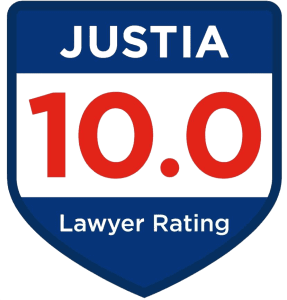- Last Updated: November 24th, 2025

Attorney Sean T. Keith has been a personal injury lawyer for 30+ years, a nationally recognized Top 100 Trial Lawyer, and top car accident lawyer & motor vehicle accident lawyer in Arkansas.
Legally Reviewed
This article has been written and reviewed for legal accuracy and clarity by the team of writers and attorneys at Keith Law Group and is as accurate as possible. This content should not be taken as legal advice from an attorney. If you would like to learn more about our owner and experienced injury lawyer, Sean T. Keith, you can do so here.
Fact-Checked
Keith Law Group does everything possible to make sure the information in this article is up to date and accurate. If you need specific legal advice about your case, contact us. This article should not be taken as advice from an attorney.
Sean Keith's Accollades & Practice Areas He Specializes In
- Over $20 Million recovered in Medical Device Injury Lawsuits.
- Over $13 Million recovered in Car Accident Lawsuits and other Motor Vehicle Accident Lawsuits.
- Over $100 Million recovered in total on behalf of clients.
- Sean represents clients in cases involving personal injuries, car accidents, motorcycle accidents, truck accidents, wrongful death, slip and falls, nursing home abuse cases, nursing home elopement cases, and more.
Zantac Lawsuit Overview
On this page, we’ll discuss the Zantac Lawsuit, recent developments in the Zantac Litigation, health issues linked to the use of Zantac, the role of Zantac Lawyers in seeking compensation for those effected, and much more.
Our Attorneys are Accepting New Clients for Zantac Lawsuits
The Zantac Lawsuit alleges that the popular heartburn medication, Zantac (ranitidine), contains a probable human carcinogen called N-Nitrosodimethylamine (NDMA), which has been linked to various types of cancer.
Plaintiffs argue that pharmaceutical companies, including GSK, Pfizer, Sanofi, and Boehringer Ingelheim, were aware of the risks associated with NDMA contamination but failed to warn the public or properly test the drug’s safety.
As a result, thousands of individuals who took Zantac and later developed cancer, such as bladder, stomach, or liver cancer, are seeking compensation for their injuries.
The lawsuits focus on the alleged negligence of Zantac manufacturers in protecting consumers from harmful side effects.
The Zantac Litigation affects a wide range of people, especially long-term Zantac users, including military veterans who were commonly prescribed the drug.
With ongoing state court trials and appeals in federal cases, the outcome of these lawsuits could have significant implications for those impacted.
Our lawyers are accepting new clients for the Zantac Cancer Lawsuit.
If you or a loved one used Zantac and subsequently developed bladder cancer or other serious health problems, you may be eligible to file a Zantac Lawsuit.
Contact a Zantac Lawyer from Keith Law Group for a free consultation.
You can also use the chatbot on this page to find out if you qualify for the Zantac Lawsuit instantly.
Table of Contents

Zantac Lawsuit Overview
The Zantac Lawsuit involves numerous plaintiffs who claim that taking Zantac or its generic version, ranitidine hydrochloride, led to the development of various cancers, including bladder cancer, stomach cancer, and prostate cancer.
Zantac Cancer Lawsuits allege that the manufacturers, including Boehringer Ingelheim and other drug companies, failed to warn consumers about the potential cancer risks associated with NDMA, a probable human carcinogen found in Zantac.
These cases have been consolidated into a Multi-District Litigation (MDL) and also pursued in state courts, such as in California and Delaware.
The litigation has seen significant developments, with some cases being dismissed in federal court, while others continue to move forward, especially in state courts like the Delaware Supreme Court and California Superior Court.
Plaintiffs in the Zantac Cancer Lawsuits argue that the drug’s manufacturers neglected to conduct adequate safety testing and misled the public about the potential dangers of the heartburn medication.
The Zantac recall, initiated by the FDA due to the presence of NDMA in the drug, has prompted many affected individuals to seek compensation through legal channels.
Zantac cancer claims continue to be filed, particularly by those who developed bladder cancer or other cancers after taking the drug.
The outcomes of these lawsuits could potentially lead to significant Zantac settlements or jury awards, as trials are ongoing in various jurisdictions, including Illinois State Court.
The overarching aim of the Zantac litigation is to hold the responsible drug companies accountable for the harm caused by their products.
If you or a loved one used Zantac and subsequently developed bladder cancer or other serious health problems, you may be eligible to file a Zantac Lawsuit.
Contact the Zantac Attorneys from Keith Law Group for a free consultation.
You can also use the chatbot on this page to find out if you qualify for the Zantac Lawsuit instantly.
How are Zantac Lawsuits Being Handled in 2024?
The Zantac Lawsuits have encountered several significant challenges and developments.
Initially, the litigation faced a major setback in December 2022 when a federal judge dismissed all lawsuits in the Zantac MDL, citing a lack of reliable scientific evidence to prove that Zantac caused cancer.
However, the litigation continues in various state courts, particularly in Delaware and California state court, where judges have allowed these cases to proceed.
Delaware has become a central battleground, with over 75,000 Zantac cases pending.
Over 5,000 Zantac cases in Delaware were settled in early 2024.
The state’s Superior Court has allowed expert testimony that links Zantac to cancer, which GSK and other defendants are actively appealing to the Delaware Supreme Court.
This appeal could have a significant impact on the future of the litigation, potentially influencing thousands of cases.
Meanwhile, some defendants, including Sanofi and Pfizer, have opted to settle thousands of claims rather than face prolonged court battles.
Despite these settlements, new lawsuits continue to be filed, as more individuals come forward claiming that their cancer diagnoses are linked to long-term use of Zantac.
The litigation is expected to remain highly contentious, with ongoing trials, appeals, and settlements shaping the landscape of these cases throughout 2024 and beyond.
Zantac Cancer Risk: What Types of Cancer May Be Linked to Zantac?
Many individuals who took Zantac or its generic versions have filed lawsuits after being diagnosed with cancer, alleging that the drug was responsible for their illness.
Scientific studies have linked Zantac’s active ingredient, ranitidine, to the formation of NDMA, a known carcinogen.
The types of cancer most commonly associated with Zantac usage have raised serious concerns about the drug’s safety.
Plaintiffs argue that the manufacturers failed to warn consumers of the risks, leading to devastating health consequences.
The following list outlines the specific types of cancer that are central to the Zantac claims.
Understanding these risks is crucial for anyone who may have been exposed to ranitidine products.
Each type of cancer has unique characteristics, but all share a potential link to NDMA exposure from Zantac.
The litigation continues as more cases are brought forward by individuals affected by these serious conditions.
Common Types of Cancer Linked to Zantac:
- Bladder Cancer
- Stomach Cancer
- Prostate Cancer
- Liver Cancer
- Pancreatic Cancer
- Esophageal Cancer
- Colorectal Cancer
- Breast Cancer
How is Zantac Linked to Cancer?
Zantac has been linked to cancer primarily due to the presence of N-Nitrosodimethylamine (NDMA), a probable human carcinogen, found in its active ingredient, ranitidine hydrochloride.
Studies have shown that NDMA can form when ranitidine is exposed to heat or stored over time, leading to potentially dangerous levels of this chemical in the drug.
This connection has led to numerous Zantac Lawsuits, where plaintiffs allege that long-term use of the medication for conditions like gastroesophageal reflux disease significantly increased their risk of developing cancers such as bladder cancer, stomach cancer, and prostate cancer.
The Zantac Cancer Lawsuits claim that the manufacturers, including GSK, Sanofi, and Pfizer, knew or should have known about the dangers associated with NDMA but failed to warn the public, leading to severe health consequences.
As the litigation progresses, many are also exploring the link between NDMA and other types of cancer, including pancreatic cancer, liver cancer, and esophageal cancer.
Despite some cases being dismissed in federal courts, these Zantac lawsuits continue in state courts, particularly in Delaware and California, where different standards for admissibility of scientific evidence apply.
Plaintiffs in these Zantac cancer claims argue that the ranitidine molecule is inherently unstable, making all forms of the drug, including generic ranitidine, susceptible to NDMA contamination.
The litigation has highlighted the serious cancer risks associated with this widely used heartburn medication, raising significant concerns about the safety of over-the-counter drugs like Zantac OTC.
As new studies and trials unfold, the connection between NDMA in Zantac and cancer remains a critical issue in ongoing Zantac litigation.
FDA Recalls and Actions on Zantac (Ranitidine)
In 2020, the FDA requested the removal of all Zantac and generic ranitidine products from the market after discovering that these medications contained N-nitrosodimethylamine (NDMA), a probable human carcinogen.
This action was taken because studies showed that NDMA levels in Zantac could increase over time, particularly when stored at higher temperatures, leading to potentially dangerous contamination levels.
The FDA’s recall emphasized the serious cancer risks associated with Zantac and its generic versions, as prolonged exposure to elevated NDMA levels could significantly increase the risk of developing cancers such as bladder cancer, stomach cancer, and liver cancer.
The FDA advised consumers to stop taking Zantac immediately and consult their healthcare providers about safer alternatives.
These alternatives to ranitidine drugs include medications like Pepcid (famotidine) and Prilosec (omeprazole), which have been tested and found free of NDMA contamination.
This Zantac recall highlighted the importance of ongoing drug safety monitoring, particularly concerning the stability of the ranitidine molecule, which was found to degrade into NDMA over time.
The recall also had significant implications for the ongoing Zantac litigation, as plaintiffs in various Zantac Cancer Lawsuits have pointed to the FDA’s findings as evidence of the drug’s inherent dangers.
The FDA’s actions continue to play a crucial role in these legal proceedings, underscoring the importance of regulatory oversight in protecting public health.
Do You Qualify for the Zantac Lawsuit?
New Zantac Lawsuits are being filed against drug manufacturers.
If you or a loved one took brand name Zantac or over the counter Zantac and developed cancer, you may qualify to join the ongoing Zantac Lawsuit.
As the Zantac trials and cases progress in courts across the US, additional opportunities to seek compensation may arise, especially for those who experienced severe health consequences.
If you believe your cancer diagnosis is linked to Zantac, consider filing a Zantac Lawsuit to pursue justice and potential compensation.
Keith Law Group: Investigating Zantac Lawsuits
At Keith Law Group, we are actively investigating new Zantac lawsuits to help individuals who have suffered severe health consequences after using brand name Zantac or over the counter Zantac.
Our team is particularly focused on cases involving plaintiff’s colorectal cancer, stomach cancer, and other forms of cancer linked to the drug.
We understand the complexities involved in these cases, and we aim to secure justice and compensation for those affected by this dangerous medication.
If you believe your cancer diagnosis is linked to Zantac, don’t wait to seek legal advice.
Contact Keith Law Group today to explore your options and start your Zantac Lawsuit.
Frequently Asked Questions
-
Yes, there have been several Zantac class action lawsuits filed, but they differ from typical injury lawsuits.
These class actions are more focused on consumers seeking refunds for the money spent on the defective drug, rather than compensation for cancer diagnoses.
Most individual Zantac cancer claims have been handled through multidistrict litigation (MDL), where cases are grouped for pretrial proceedings but remain individual lawsuits rather than part of a single class action.
Other consolidated actions have been undertaken in state courts, such as California State Court and Delaware State Court.
-
Zantac settlements have varied widely.
Some settlements have been confidential, while others have been publicized.
For example, one settlement in Illinois reached $500,000, but this is not necessarily typical for all cases.
Settlement amounts can depend on various factors, including the type of cancer, the severity of the case, and the jurisdiction in which the lawsuit is filed.
-
Zantac has been linked to several types of cancer, with the strongest connections to bladder, stomach, esophageal, liver, and pancreatic cancers.
These links are due to the presence of NDMA, a probable human carcinogen, in ranitidine, the active ingredient in Zantac.
Ongoing litigation continues to explore these connections as more evidence comes to light.
If you’ve been diagnosed with cancer after taking Zantac, you may be eligible to file a Zantac Cancer Lawsuit.
Reach out to our Zantac attorneys for a free consultation, or use the chatbot on this page to find out if you qualify for the Zantac Lawsuit instantly.
-
To qualify for a Zantac lawsuit, individuals typically need to have taken the brand-name Zantac for an extended period and been diagnosed with one of the cancers linked to the drug, such as bladder or stomach cancer.
Eligibility also depends on factors such as age at the time of diagnosis and the duration and frequency of Zantac use.
An experienced Zantac lawyer can help assess whether you qualify for legal action.
Practice Areas
You pay
Nothing
unless we win
Do You Have A Case?
Related Articles

Choose Us For Your Personal Injury Case
- Available 24/7
- No Upfront Fees
- Free Case Evaluation
- No Fees Unless We Win!











